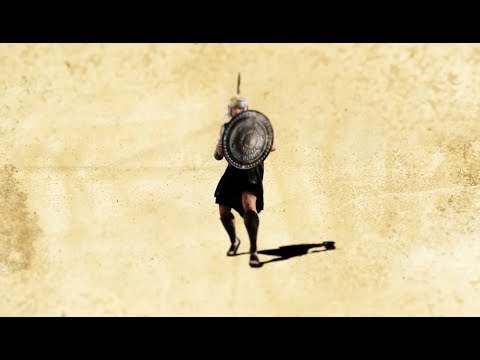Bonjour / Hello [nickname_else_first_name],
Table of contents
1) Perashat Hashavoua - Rabbi Eli Mansour
2) Halakhat Hashavoua (Halakhot related to day to day life)-Laws of Elul - Hazzan David Azerad
3) Holy Jokes!
1)PERASHAT HASHAVOUA
This Week's Parasha Insight with Rabbi Eli Mansour
Parashat Ki-Teseh: Emuna and Honesty
Parashat Ki-Teseh concludes with two Misvot which, at first glance, are entirely unrelated. The first is the command to use honest weights and measures when conducting business. The Torah strictly forbids deceiving people, such as customers, by tampering with the scales and other devices in order to overcharge. This command is followed by the Misva to remember Amalek’s brazen, unprovoked attack against Beneh Yisrael after the Exodus from Egypt, and the requirement to obliterate the memory of Amalek.
Rashi, based on the Midrash, writes that these two Misvot are actually very closely related. He writes: "If you lie in regard to weights and measures, then you must worry about the provocation of the enemy." The Torah links these two commands to teach us that the punishment for dishonest weights and measures is coming under attack by enemies such as Amalek.
However, in the Book of Shemot, Rashi seems to view Amalek’s attack differently. The story of the war against Amalek follows the events that occurred in Masa U’meriba, where Beneh Yisrael complained about the lack of water, and asked, "Ha’yesh Hashem Be’kirbenu, Im Ayin" – "Is G-d in our midst, or not?" (Shemot 17:7). Rashi (Shemot 27:8) comments that it was because of this lack of faith, the people’s wondering whether Hashem was with them and caring for them, that Hashem sent Amalek to attack them. Whereas here in Parashat Ki-Teseh Rashi attributes Amalek’s attack to the sin of dishonesty in commerce, in Sefer Shemot, Rashi writes that this event served to punish the people for their lack of Emuna.
Rav Shimon Schwab (1908-1995) explained that in truth, these are one and the same, two sides of the same coin.
The Gemara in Masechet Shabbat (31a) teaches that each person, after leaving this world, will be asked three questions, one of which is, "Nasata Ve’natata Be’emuna?" – whether or not he conducted his financial affairs "Be’emuna" – honestly, in a trustworthy manner, without misleading or deceiving people. Rav Schwab noted that "Be’emuna" also means "with faith," meaning, conducting one’s business affairs with faith in Hashem. These are not two different meanings of the phrase "Nasata Ve’natata Be’emuna," but rather two aspects of the same outlook. If a person has faith in Hashem, and firmly believes that regardless of his efforts, he never receives more or less than what Hashem decides he should have, then he will naturally conduct his affairs honestly. A person with Emuna understands that in the long term, no benefit can possibly be received from ill-begotten gains. If we believe in Hashem, then we believe that we will always have precisely what Hashem gives us, and that if we obtain money or other assets in ways which He strictly forbids, such as through dishonesty, we will ultimately lose it. A person with Emuna will never try to cheat somebody to earn money – because he believes that his livelihood depends solely on Hashem, who will clearly take away anything he gains by violating the Torah, and will reward him for any sacrifices made for the sake of observing the Torah.
Thus, Rashi’s comments are not at all contradictory. Amalek comes as punishment for a lack of Emuna, and for this same reason, Amalek comes as punishment for false weights and measures, for deceiving people in business. These are two sides of the exact same coin.
Let us conduct all our affairs with firm Emuna, so that we will not even be tempted, or entertain a fleeting thought, to "cut corners" or do anything even slightly unethical. Let us reinforce our belief that we have nothing to gain through dishonesty, and we have everything to gain by adhering to the Torah’s strict standards of ethics and morality.
2) HALAKHAT HASHAVOUA
Selected & translated by David Azerad, Hazzan Maghen Abraham
The laws of the month of Elul, according to the rulings of Rabbi Obadiah Yosef ZT”L
How should one ask forgiveness from his friend?
If one spoke Lashon Hara about his friend or hurt his friend, and his friend does not know about it at all, there is no need to inform him, because it will only upset him. He should simply ask for his forgiveness.
A person must not be cruel, difficult, stubborn or angry when someone is asking his forgiveness. A person should accept with all is heart and with good intention without holding a grudge.
What should one do if his friend does not wish to pardon him?
Our Sages say: "Whoever forgives others easily Hashem will also forgive him as well. However if he does not forgive his friend, he will not be forgiven in heaven either." Unless his intention is for the benefit of the one asking for forgiveness, such as to stop his bad behavior,only then he is entitled not to forgive him immediately. However am Yisrael are merciful people and always forgive and do not hold grudges.
After all that was said If his friend still does not wish to pardon him, he should bring three of his friends in order to convince the other person to Pardon and if he still does not want, we repeat this three times. By the third time, the person that refuses to pardon is at fault now.
If his friend is not in town and cannot reach him by phone to reconcile, He will wholeheartedly accept his reconciliation when he meets him, and since he has accepted his reconciliation, God considers him as if he has already reconciled.
Bevirkat Shabbat Shalom Umevorch
David Azerad
3) HOLY JoKeS!!
Selection of funny snippets, loosely related to this weeks parashah, to brighten your day


Jewish Art from Venice












